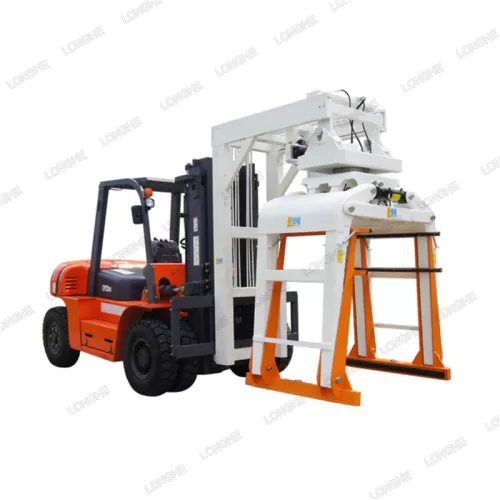Jun. 15, 2023
Mechanical Parts & Fabrication Services
The overhead block clamp, also known as a block grab or block clamp, is a specialized lifting device designed to grip and transport a wide range of materials, such as concrete blocks, bricks, stones, and similar loads. It consists of a robust frame, hydraulic or mechanical jaws, and various safety features to ensure secure lifting and handling operations.

There are two primary types of overhead block clamps available in the market: the single pad overhead block clamp and the multiple pad overhead block clamp. Let's explore each type in more detail:
The single pad overhead block clamp features a single hydraulic or mechanical pad for gripping materials. It is suitable for lifting smaller loads or individual units. This type of clamp provides excellent maneuverability and precise control, making it ideal for applications where precision is crucial.
The multiple pad overhead block clamp comprises multiple hydraulic or mechanical pads arranged in a specific configuration. It is capable of lifting larger loads or multiple units simultaneously. This type of clamp offers increased stability and load distribution, enabling efficient handling of bulkier materials.
An overhead block clamp typically consists of the following key features and components:
Frame: The sturdy frame provides structural integrity and support for the clamp.
Jaws/Pads: The hydraulic or mechanical jaws or pads are responsible for gripping and holding the load securely.
Control System: The control system allows the operator to activate and control the clamp's functions.
Safety Features: Safety features such as load sensors, anti-slip devices, and backup systems ensure safe and reliable operations.
Attachment Mechanism: The attachment mechanism connects the clamp to the lifting equipment, such as a crane or forklift.
When using an overhead block clamp, the operator positions the clamp's jaws or pads around the load to be lifted. The hydraulic or mechanical system is then activated, causing the jaws to close and securely grip the material. Once the load is secure, the clamp can be lifted and transported to the desired location. The control system provides precise control over the lifting, lowering, and releasing actions, allowing for efficient material handling.
Overhead block clamps find widespread use in various industries and applications. Some of the key areas where these clamps prove invaluable include:
In warehousing and distribution centers, overhead block clamps are employed for efficient handling of palletized loads, including bricks, concrete blocks, and other construction materials. These clamps enable quick and safe loading and unloading operations, streamlining the logistics processes.
At construction sites, overhead block clamps play a vital role in lifting and positioning heavy materials such as precast concrete panels, steel beams, and masonry units. Their robust construction and precise control help ensure smooth and accurate placement of these materials, saving time and labor.
In manufacturing and production facilities, overhead block clamps aid in the movement and stacking of products, including large-scale items like automotive parts, machinery components, and raw materials. These clamps enhance productivity by enabling efficient material flow and reducing manual handling.
Previous: Can a 40ft expandable container house be customized?
Next: Steel Braided Hydraulic Hose: The Strong and Reliable Solution
If you are interested in sending in a Guest Blogger Submission,welcome to write for us!
All Comments ( 0 )